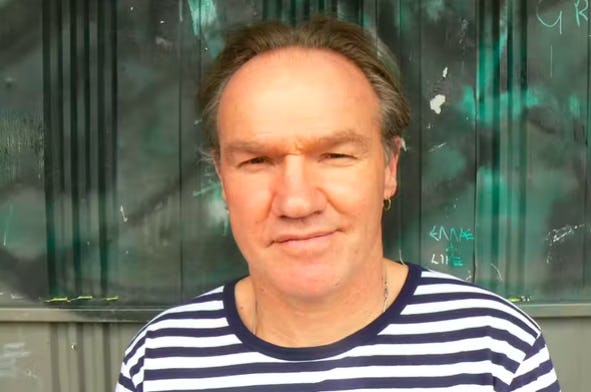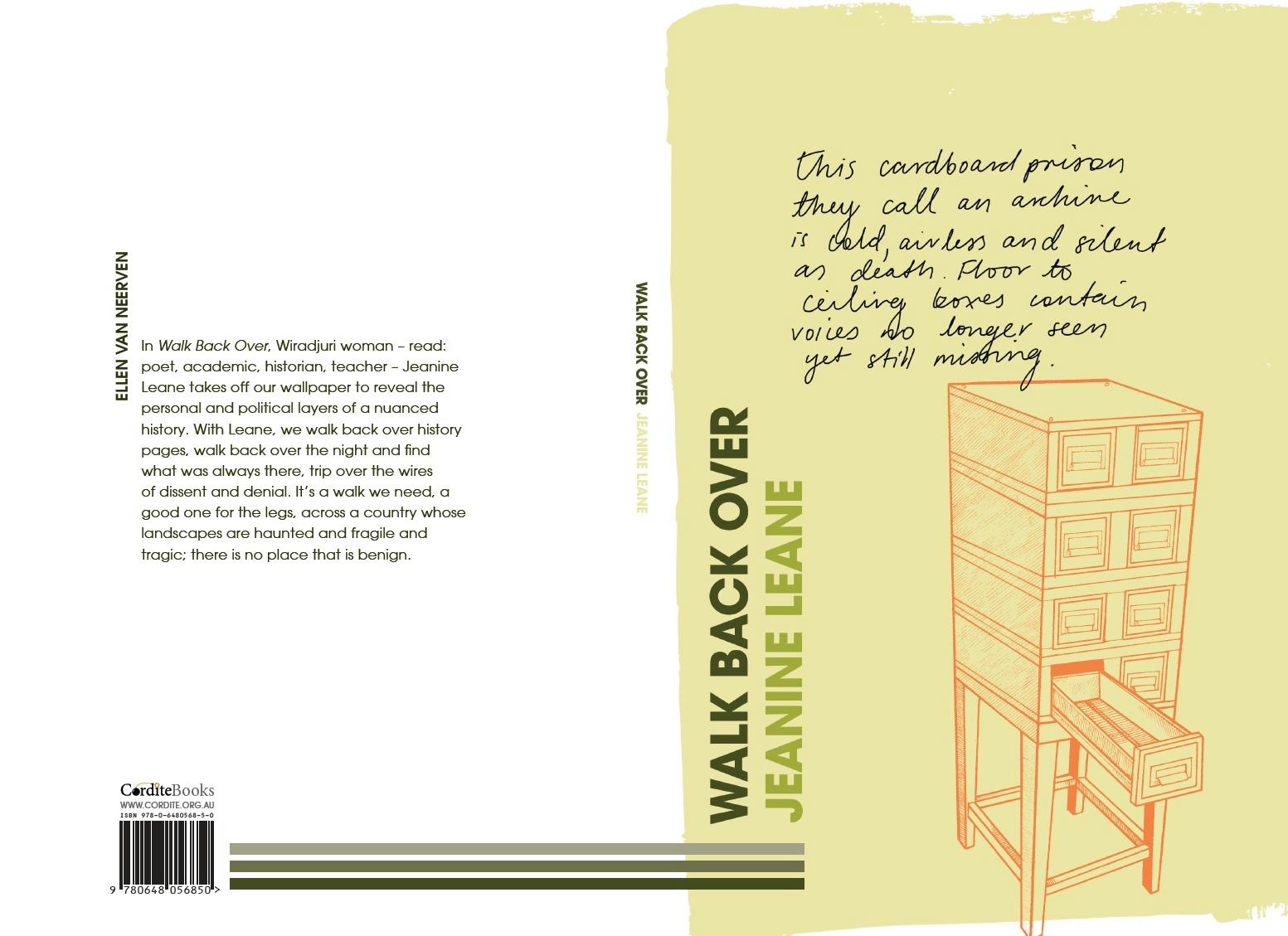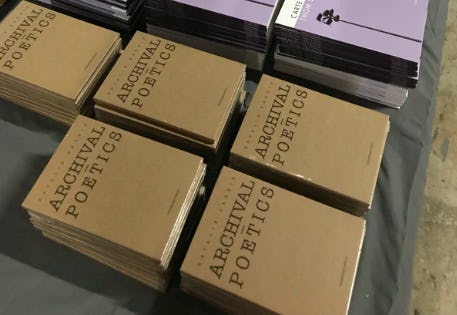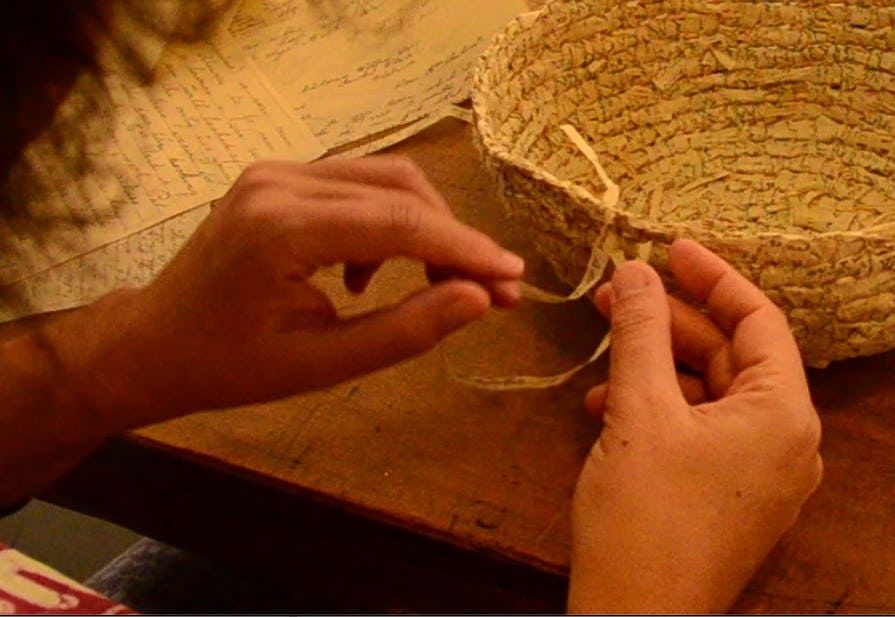On History, Poetry and the Official Past
Patrick Allington • 29 April 2022
I look to the past – events, people, objects – to help me try to see my biases about the present and future (emphasis on 'try'). Historian Anna Clark’s Making Australian History, published earlier this year, shows official and embedded versions of the past as contested and subjective. In a recent short essay, Clark cited the influence of Tony Birch’s 2016 poetry collection Broken Teeth on her work, including her response to the contents of official archives.
Birch’s work makes Clark think of Wiradjuri woman Jeanine Leane’s poem 'Cardboard incarceration', the searing opening poem in her 2018 collection Walk Back Over. As Ellen van Neerven’s introduction to the book puts it, Leane leaves readers with ‘no place that is benign’.
Narungga woman Natalie Harkin also challenges the assumptions of the colonial archive in her poetry collection Archival-Poetics and in a moving essay about 'weaving a basket from a selection of letters from the State’s Aborigines Protection Board and Children’s Welfare Board files'.
To end, a beautiful Tony Birch essay that looks at the past in another way, by reflecting on the comfort of objects in times of grief.

The book that changed me: I’m a historian but Tony Birch’s poetry opened my eyes to confronting truths about the past
Anna Clark, The Conversation, March 2022
They’re questions that resurfaced for me when I first read Tony Birch’s collection of poetry, Broken Teeth, in 2016. I had been working on a history of Australian History, which sought to tell the various ways Australia’s national story had been imagined. But in contemplating Birch’s work, I was forced to reimagine the scope of the project.
To me, his poetry felt as powerful as any of the history books I had been studying, not only with its commentary on 'what happened', but as a statement on historical practice.
Cardboard Incarceration
Jeanine Leane, Australian Book Review, 2016
The poem 'Cardboard Incarceration' was published as part of Australian Book Review’s States of Poetry ACT, in 2016. It is the opening, anchoring poem of Leane’s collection Walk Back Over, published in 2018 by Cordite Books. Its opening lines, starting, 'this cardboard prison', sit on the book’s cover.

Introduction to Jeanine Leane’s Walk Back Over
Ellen van Neerven, Cordite Poetry Review, September 2017
With Leane, we walk back over history pages, walk back over the night and find what was always there, trip over the wires of dissent and denial. It’s a walk we need, a good one for the legs, across a country whose landscapes are haunted and fragile and tragic; there is no place that is benign. 'What piece' (what peace)? – the question asked in the second poem, 'Piece of Australia' – becomes an echo in the reader’s mind throughout the collection.

Archival-Poetics
Natalie Harkin, Vagabond Press, 2019
The opening pages of Natalie Harkin’s Archival-Poetics can be read online at the Vagabond Press website as a flipbook. It is a startling and resonant work of art and activism.

Weaving Blankets of Story and Hearts of Gold: An Archival-poetics Praxis
Natalie Harkin, Cordite Poetry Review, May 2021
My dad was diagnosed with lung cancer on his fifty-ninth birthday and after a fierce battle with his body and mind, he died two years later. In the face of all odds, he maintained optimism and hope. He could never accept the inevitable, and in the words of Dylan Thomas, he did indeed rage against the dying of the light. His courage, dignity and will shone bright until the very end.
On the first of many anniversaries after dad died, his birthday felt like the right time to begin weaving a basket from a selection of letters from the State’s Aborigines Protection Board and Children’s Welfare Board files, handwritten by my nanna and great-grandmother: a small contemplation on mourning, family history and the colonial archive, and the heart of my research at the time.
Things of Stone and Wood and Wool
Tony Birch, Griffith Review, April 2020
Following the burial at a local cemetery, we were invited back to the community hall, where we enjoyed food and stories about the life of my friend’s father. I noticed a wooden table where a range of items had been placed: books, hand tools, photographs and other second-hand objects you might find at a garage sale. My friend took me over to the table and explained that each of the items had belonged to her father and held particular significance for him and his family. I was invited to choose an object and take it home with me as an act of commemoration. I hesitated. It didn’t seem right that I should take something personal belonging to a man I’d hardly known.
Coda – I Believe: On Hilma af Klint and the Writing Life
Patrick Allington, Meanjin, Spring 2021
This edition of The Circular was guest-edited by Patrick Allington. For your further reading pleasure, we'd like to introduce you to his essay on how he became haunted by Hilma af Klint.
I imagine all af Klint’s paintings and studies and notebooks, thousands of canvases and pages laid out and floating free so that I can move freely around them, view them from every angle, and shift them at will, as if creating a mosaic. Or I imagine them all piled up in the corner of a warehouse, vibrating. Or I imagine them thrown into a vast drum and boiled down to their elixir: a sip gets me through the next day and the next.
Patrick Allington is a writer, editor and researcher. His books are the novels Rise & Shine (Scribe) and Figurehead (Black Inc.) and the textbook Making the Grade (OUP). His essays, short fiction and criticism have appeared widely. He has taught and researched politics, communications, writing, and editing. He is an Adjunct Senior Lecturer in Creative and Performing Arts at Flinders University.